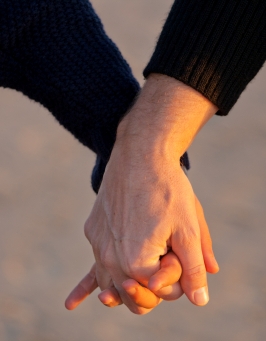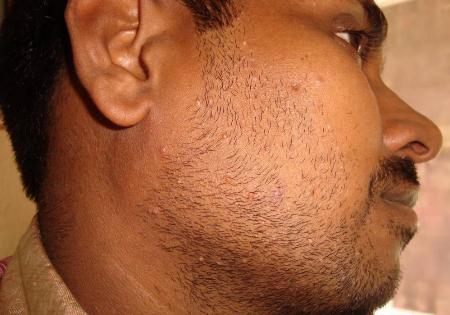
Is molluscum contagious? Yes, it is! In fact, this virus is highly contagious. That’s why many doctors recommend treating the condition, even though it usually goes away eventually without any treatment. It normally takes six to 12 months to go away on its own and during that time, you can easily spread the condition to others.
How is Molluscum Contagious?
Molluscum is most contagious through direct contact. If you have molluscum on your hands and you hold hands with or otherwise touch someone else, he or she can get the virus. If you have molluscum on your genital area, which is not too uncommon in adults, you can spread it to a partner through sexual contact.
Molluscum can also be spread through indirect contact(1). If you share towels, washcloths, clothing, bed linens, pillows, makeup, razors, or other personal items with someone with molluscum, you might get it. Sharing personal items is a good way to spread other conditions you’ll prefer to avoid, as well, including ringworm, head lice, and scabies. It’s best avoided if at all possible.
You can also spread molluscum from one area of your body to other parts of your body by scratching the affected areas or trying to squeeze and pop the blister-like bumps. That’s also a good way to cause a secondary bacterial infection, so try to avoid scratching even though the condition itches. Shaving areas with molluscum can also cause it to spread.
To Whom is Molluscum Contagious?
Anyone can get molluscum, including healthy adults. The condition is most often seen in children ages 10 and under, though. It’s also more common in people with impaired immune systems, such as those with HIV.

How Can You Prevent The Spread of Molluscum?
If you have molluscum, wash your hands frequently, especially after touching the affected areas. Don’t scratch the affected areas and don’t pick at, squeeze, or try to pop the blister-like bumps.
Avoid touching other people if you can, especially if you have molluscum on your hands. Avoid sexual activity if you have molluscum on or near your genitals.
If you have molluscum on a small area of your body, covering the area with a bandage can help prevent spreading it to others. Of course, it probably isn’t feasible to cover large portions of your body with bandages.
As discussed earlier, molluscum can be spread indirectly by sharing personal items like towels, bed linens, clothing, and personal care products. If you have molluscum, don’t share your personal items with others.
You can also help prevent spreading molluscum(1) to others by getting treatment for your condition. Once the bumps are gone, you won’t be contagious anymore.
Treatment For Molluscum
Treatment options for molluscum include:
- Topical medications applied to the bumps
- Oral antiviral drugs
- Curettage (scraping off the bumps)
- Cryotherapy (freezing off the bumps)
- Electrocautery (burning off the bumps)
- Laser therapy
- Natural remedies
Visit our page on molluscum treatment for more information on various treatment options.
Our Preferred Treatment For Molluscum
Individual needs and preferences may vary, of course, and we suggest talking to your doctor if you have questions about the best treatment for your condition. Our preferred treatment for molluscum is a natural remedy called Naturasil. We like it because it’s effective and, since it’s made from natural plant extracts with antiviral properties, it carries a far lesser risk of side effects than many other treatments (though even natural remedies can sometimes have unwanted effects). To learn more about our preferred treatment for molluscum, just follow the link.
